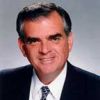When the second session of the 110th Congress is gaveled to order this month, it will represent one year to go on my career in the U.S. House. Following the general election in November, the 111th Congress will be sworn in during the first week of January in 2009, and the new representative from the 18th District will take office.
Beginning with my work for Congressman Tom Railsback in the late 1970s, continuing by working under Congressman Bob Michel for 12 years and culminating with my election to Congress in the 1994 election, I have had the privilege of serving the people of central and western Illinois by being their voice on Capitol Hill for 30 years.
Much has changed in politics, especially with regard to the discourse surrounding public officials, since I started my career in the House under Tom Railsback. Today’s 24-hour, blog-happy, talking-head, “gotcha” news cycles are a far cry from the time when news releases were copied via ditto machines and relayed to reporters via telephone and postage stamps.
In large part due to the Internet, email, talk radio and a media that inquires about most issues surrounding a politician, citizens today have more access to every detail of their elected officials than ever before. If people want to know an official’s views on a particular issue, all they need to do is check the Internet. I have often said that when you are an elected official, there really is no right to privacy. Everything you have done in your life is fair game and open to possible exposure. And that is not necessarily a bad thing.
Then again, today’s political conversations have become more acerbic and divisive because of the prevalence of these technologies. Politicians have no problem running negative ads or “trash-talking” their opposition, often filtered through commercials or canned statements to avoid actually engaging their opponents. Citizens can say anything they want about officials through the anonymity of blogs and the Internet. It seems, at times, that there is no contemplation given to conducting a civil, well-thought-out discussion about an issue.
I had the opportunity to work for two tremendous leaders— representatives who taught me the true meaning of public service. I cannot thank Tom Railsback and Bob Michel enough for their mentorship and friendship over the years. Their approach to public service and the manner in which they carried out their duties should be studied and emulated by all who wish to become elected officials.
Mr. Michel is especially remembered for the “we-can-agree-to-disagree” manner in which he approached public service. There are many people, especially those in the strident wings of both political parties, who deride this approach. But the fact of the matter is that our government is founded on representative democracy. No single person gets his or her way entirely. Our system is one of compromise, and as an elected official, you can either choose to work or not work with those who oppose your views. In the end, it is my belief that those who choose to engage their opponents are the officials who accomplish many things for the citizens they represent.
While this is my last year in the U.S. House, I certainly don’t plan to “take it easy.” There is still much work to be done during this Congress. Until the day I am no longer in office, I will continue to be a tireless advocate for our farm families, for expanding economic opportunity in our communities, for developing a modern infrastructure and for keeping our national defenses strong. From projects in our smallest towns to projects which encompass the entire state—such as those which involve the Illinois River—I will continue to use my position on the House Appropriations Committee and as a member of the U.S. House to do all I can for the 18th District.
I am looking forward to my final session in Congress. It is my goal to make it an energetic, productive and meaningful year. IBI

